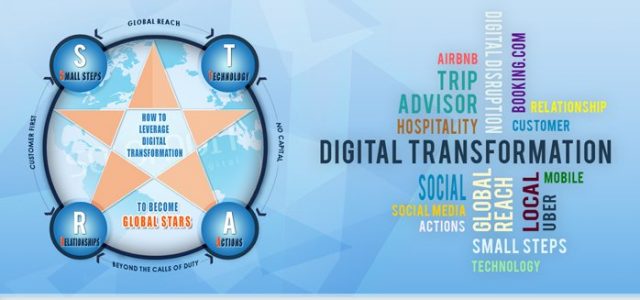In economics, Kondratiev waves (or supercycles) are cycle-like phenomena in the modern world. [1] Initially identified in 1925 as major economic cycles by Nikolai Kondratiev, Joseph Schumpeter suggested in 1939 naming the cycles “Kondratieff waves” in his honor.
The theory originally hypothesized the existence of very long-run macroeconomic cycles lasting between 50–54 years. Kondratiev identified three phases in each cycle: expansion, stagnation, and recession. More common today is the division into four phases with a turning point (collapse) between the first and second phases. This latter phase seems very realistic, and is well articulated in the work of Geoffrey Moore in Crossing the Chasm [2].
According to the innovation theory, these waves arise from the clustering of foundational innovations that trigger technological revolutions that in turn create new industries and or commercial markets. However, it is also important to understand that there are also close relationships between technology and economic cycles which may accelerate or reduce adoption and therefore cycle length.
There are several modern versions of the technological cycles. They may be generalized as follows:
• Industrial Revolution—1771
• Steam and Railways—1829
• Steel and Heavy Engineering—1875
• Oil, Electricity, the Automobile and Mass Production—1908
• Information and Telecommunications—1971
And these hypothesised cycles seem to support the cycle duration theory in the range 50 – 60 years. And while we are forever hearing that change gets more and more rapid, we should remind ourselves that the four phases identified by Kondratiev and Schumpeter exert natural constraints on the phase and cycle duration timescale – formation and evolution of foundational R&D, infrastructure, enterprises, markets, and supply chains takes time.
This basic technology cycle model may help us to understand what’s happening in our world today. Some key questions. Are we right now in an Information and Telecommunications cycle? What phase? Is the Internet a phase of this, or is there an Internet cycle?
I am minded to say that this phase is reasonably named, and it is in stagnation – that our ability to leverage the foundational information and telecommunications infrastructure is over stretched. And that a new cycle of Artificial Intelligence is in the very early stages of the expansion phase which leverages the essential information and telecoms infrastructure to enable a huge array of application areas in all vertical sectors based on reasoning, decisioning, differentiated user experience, robotics etc.
Let’s examine a little more closely the stresses in information and telecommunications that indicate we are in the recessionary phase. First we can see that technology is having major impacts on society. While social media has an extraordinary and pervasive level of adoption [3] the capabilities are being widely abused. As a result social media is directly impacting on society, facilitating corruption of electoral processes, information integrity and opinion, often creating popular anger and influencing various outcomes in elections, referenda, opinion polls etc.
We will all be aware how Donald Trump very effectively uses Twitter to apply pressure in a very public manner. You might conclude that the concepts of big data are being used for unintended purposes.
In response to these obvious flaws the tech companies have responded. But the responses are very tactical, to identify and remove fake news, bullying and criminal behaviors and stop abuse. This is purely tactical; the absence of standards and legislative governance is clearly a major problem, exacerbated by the global nature of the tech industry at a when many countries are rejecting globalism for nationalism, very possibly as a direct result of the abuses. And this chaotic behaviour is only the start. As we move deeper into the Artificial Intelligence technology cycle, the pressures on society will become extreme. Already many are concerned that AI will eliminate many jobs, and not just the mundane and routine, but many skills and disciplines that can be hugely improved using vast stores of knowledge of best practice.

It seems the tech companies are attempting to respond to some of the most pressing symptoms of anarchic data management. But, notwithstanding brave mission statements such as “do no harm”, the tech companies cannot reinvent society themselves. What’s required is a new model for society that provides a backplane for tech innovation. Instead of tech companies innovating simply to make more money in the next 4 quarters, what’s needed is a vision of how tech can support dramatic changes in the way we live, work and play. And in the longer term this approach is likely to deliver a more stable transformation of society into the AI based technology world which attempts to match educational systems with likely resource requirements in the appropriate timeframe. Standards that facilitate integrity, security and privacy, protecting the individual and society.
Of course, there’s a major problem that the greater the level of AI based automation, the greater the probability that we will deliver a big brother like society. And we can observe right now a great fragmentation of society as technology gives more and more people a voice, yet conventional governance systems prevent wide scale involvement apart from voting for individuals or parties every few years. No surprise people feel they are becoming more and more disenfranchised and therefore more marginalized, and are we surprised when radical politicians such as Trump, or radical ideas such as Brexit gain traction; mostly it must be said in protest against the status quo.
So, part of the vision and new model needs to facilitate new role and responsibility systems. Many of us will be very familiar with Agile projects. The core idea that small teams, given responsibility and accountability are the ideal way to deliver something useful. Perhaps this is a model that we should be looking to use more widely.. Some examples of decentralization and distribution:
– Back in the 1990s in the UK, many schools were released from local government control; the “grant maintained” schools ran themselves. Albeit with exceptionally strong central governance in the Ofsted system. At the time I will admit I thought it highly improbable that parent based governing committees could rise to the task; but I was proved wrong – in practice and now for decades these independent schools have delivered excellent education with very high levels of local management.
– Recently I noted, again in the UK, a Labour politician was elected as mayor of the Greater Manchester. Whilst Andy was and is a very senior Labour party politician, he rejected most of the central party policies, and ran his campaign specifically on key local issues. In effect he was saying, Greater Manchester is different; we need localized policies that will work for us. He was elected in a landslide.
Consider now, what could we do with tech to facilitate all manner of distributed and decentralized enterprises and projects? Frankly the social media tools today are focused on making money for the tech company and its platform participants. Plainly they do not support collaboration, education, team building and management whether formally or informally. Sure, they can be useful at some level; but consider what could be done if enabling and facilitating meaningful dialogue, higher integrity of all types of data, appropriate levels of AI based governance, coordination of distributed activities encouraging local or distributed groups to form for defined purposes, was at the heart of the platforms? What’s the business model? If governments saw that well organized local groups were a force for good, overcoming some of the most difficult problems in society through concerted action, we might imagine that government funding would be forthcoming. Perhaps governments could even work with tech companies on supporting localized solutions for big national problems that really only have localized solutions.
I accept this is going against the grain of globalization; but globalization and localization should work side by side; small groups collaborating with other small groups to share ideas, practices work products etc. as well as forming standards bodies that provide guidance for wider communities.
The tech companies are at the forefront of societal change. My thesis is that they need to take some responsibility for the outcomes. Many of the tech leaders have made fortunes from their efforts; some have become philanthropists, usually in very different sectors from tech. I suggest it’s time for some of these folks to address their philanthropy to solve the problem that they are handing to society; otherwise we will have a dystopian future of their own making!
[1] Kondratiev wave
[3] Number of social media users worldwide from 2010 to 2020 (in billions)
Article by channel:
Everything you need to know about Digital Transformation
The best articles, news and events direct to your inbox
Read more articles tagged: Digital Disruption, Featured






